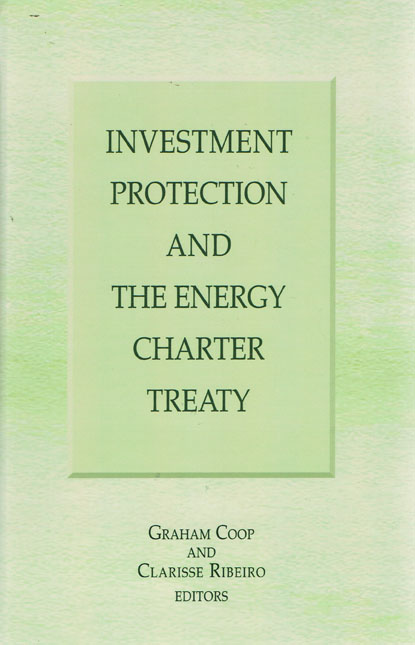
Investment Protection and the Energy Charter Treaty, contains in depth substantive analysis of the interpretation and application of provisions of the Energy Treaty Charter including access to dispute resolution mechanisms under Article 26 of the Treaty and the standards of treatment for investors under the Energy Charter Treaty, including the guarantee of most favored nation treatment, protection against unfair and inequitable treatment, unreasonable and discriminatory measures, direct and indirect expropriation, breaches of investment agreements, damages due to war and similar events, and unjustified restrictions on the transfer of funds, as well as protection against certain types of tax measures.
The book examines issues such as the arbitrability of “pre-investment” disputes under the Treaty and whether public tender offers can qualify as “existing” investment rather than “pre-investment” activity and the applicability of the ECT between members of the European Community. The role of the ECT in the context of the European Union and Russia (examining the legal dimension of the oil and gas relationship between the EU and Russia) and provides a comparison of the Energy Charter Treaty and other investment Treaties (distinguishing the ECT approach to investment protection in the context of disputes submitted to arbitration under its dispute resolution provisions).
The purpose of this book is to continue to raise awareness about the Energy Charter Treaty; a keystone of the Treaty is its mechanisms for dispute settlement. Without these mechanisms, the Treaty would be little more than a statement of political intent, easy to endorse, and also relatively easy to ignore.